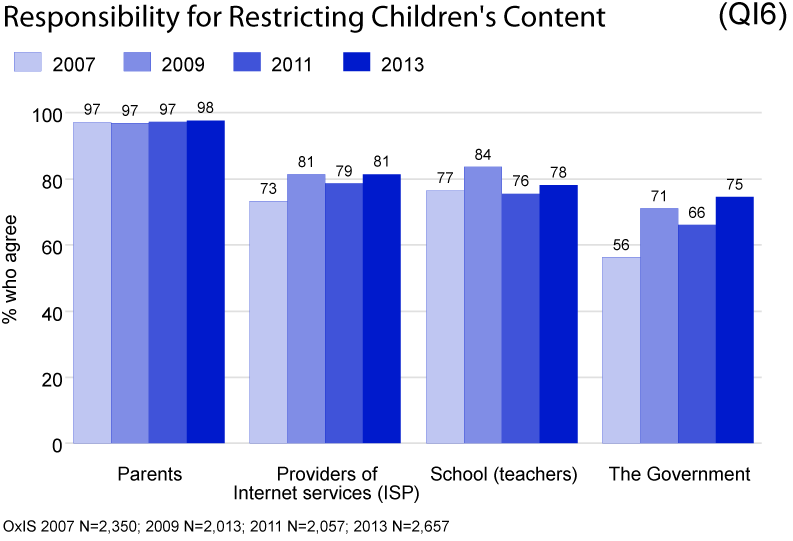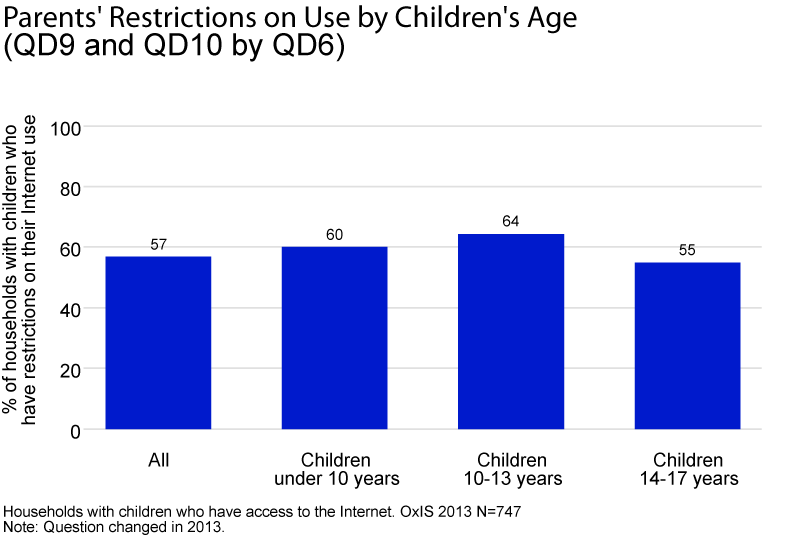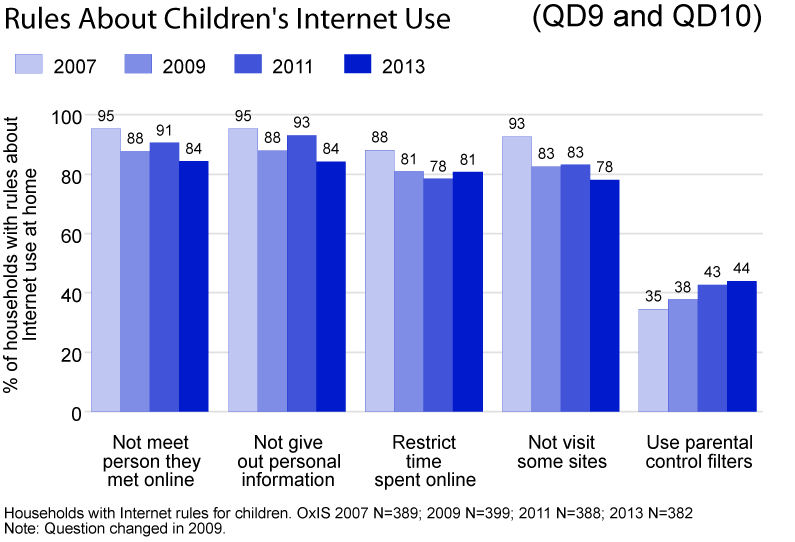Children’s regulation shows trends that appear contradictory. Although the percentage of parents establishing rules about Internet use is declining, parents also are increasingly installing filtering software. However, opinions about the assignment of responsibility for protecting children are stable: respondents overwhelmingly think parents should be responsible.
Few people believe that children’s content should be unrestricted, and the vast majority continue to lay the primary responsibility for this with parents (98% in 2013), as well as by Internet Service Providers (81%) and teachers (78%), and increasingly by government. Whilst there has been little change in attitudes towards the role of ISPs and teachers in 2013, there seems to have been a rise in support for government intervention, with 75% of respondents agreeing that government should be responsible, compared to 66% in 2011 and 71% in 2009. This has been reflected in government initiatives aimed at protecting children from inappropriate content.
When it comes to placing restrictions on children’s Internet use, 57% of parents in connected households claimed to have done so. Child protection groups are likely to view this as a disappointing statistic, possibly indicating that parents with children are not as concerned as the general public, and do not see as great of a risk. Alternatively, it could be that efforts to make parents more aware of online risks are not reaching all families who could benefit. Parents with children between the ages of 10 and 13 were most likely to report restricting use in some way (64% of households with children in 2013), perhaps reflecting the growing online skills combined with continued vulnerability of this age range.
For connected households, the most commonly set rules advise children not to meet people they meet online or to give out personal information (both 84% in 2013). In both cases though, the prevalence of these rules seems to have dropped somewhat since 2007, when comparable percentages were both 95%. The proportion of parents restricting online time and restricting access to certain sites also seems to have declined since 2007: time restrictions have dropped from 88% to 81% of households, site restrictions have dropped from 93% to 78%. This may be a consequence of greater use by children at home and with friends, making restrictions more difficult to enforce. On the other hand, there appears to be a slow but steady upward trend in the adoption of parental control filters, rising gradually from 35% in 2007 to 44% in 2013.



